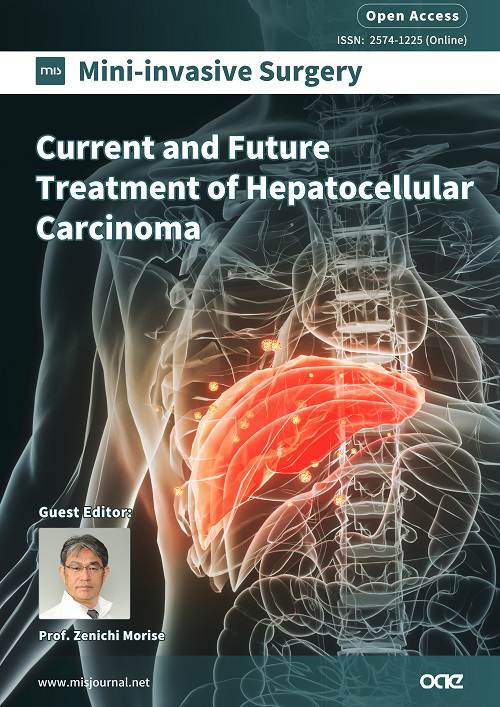
Topic: Current and Future Treatment of Hepatocellular Carcinoma
Guest Editor(s)
Special Issue Introduction
Minimally invasive liver surgery (MILS) for hepatocellular carcinoma (HCC) has attracted considerable attention as an alternative to traditional open liver surgery (OLS). There are two main aspects of minimally invasive techniques for HCC: minimally invasive hepatectomy, such as laparoscopic hepatectomy, robotic-assisted hepatectomy, etc; partial and regional non-surgical resection, such as transhepatic artery treatment, microwave ablation, percutaneous ablation, etc.. However, the long-term and short-term survival benefits of this minimally invasive approach are unclear. In addition, in different tumor stages of HCC, how to choose to maximize the effect of each minimally invasive technique is a skill that every contemporary doctor should master. Therefore, this Special Issue aims to collect the researche from the leading experts around the world, discuss the current difficulties and future perspectives, explore different minimally invasive treatment techniques to improve prognosis and make evidence-based treatment decisions.
This Special Issue will discuss topics including but not limited to:
1. Laparoscopic liver resections for hepatocellular carcinoma;
2. Minimally invasive surgery in liver transplantation for hepatocellular carcinoma;
3. Robotic liver resection for hepatocellular carcinoma;
4. Microwave ablation for treatment of hepatocellular carcinoma and liver metastases;
5. Percutaneous ablation for hepatocellular carcinoma;
6. Transhepatic arterial therapy for hepatocellular carcinoma;
etc.
This Special Issue will discuss topics including but not limited to:
1. Laparoscopic liver resections for hepatocellular carcinoma;
2. Minimally invasive surgery in liver transplantation for hepatocellular carcinoma;
3. Robotic liver resection for hepatocellular carcinoma;
4. Microwave ablation for treatment of hepatocellular carcinoma and liver metastases;
5. Percutaneous ablation for hepatocellular carcinoma;
6. Transhepatic arterial therapy for hepatocellular carcinoma;
etc.
Submission Deadline
25 Oct 2022
Submission Information
For Author Instructions, please refer to https://www.oaepublish.com/mis/author_instructions
For Online Submission, please login at https://oaemesas.com/login?JournalId=mis&SpecialIssueId=mis220425
Submission Deadline: 25 Oct 2022
Contacts: Judith Duan, Assistant Editor, miniinvasive.editor@misjournal.net





